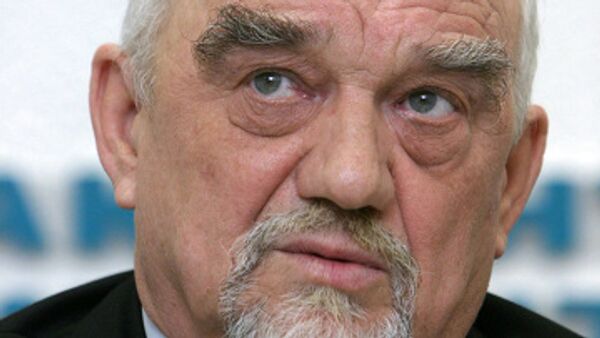TIRASPOL, September 6 (RIA Novosti) - The president of Transdnestr voiced fears Sunday that political instability in Moldova could cause provocations.
"Instability in Moldova is increasing. This could lead to various provocations, including armed ones," Igor Smirnov told the Transdnestr Armed Forces that mark the 18th anniversary on September 6.
The Russian-speaking province of Transdnestr has maintained de facto independence from Moldova since a brief war in 1992, which was the culmination of tensions following the breakup of the Soviet Union.
Russia has had peacekeepers in the region since July 1992, and the negotiation process has been frozen since February 2006.
"It's unquiet in neighboring Moldova, the political situation there is uncertain. Whoever comes to power, there remains only one vector of movement there: to the West. [But] we see ourselves in the east, together with the great Russia, in a union of fraternal Slavic nations," Smirnov said.
Moldova's acting president Vladimir Voronin formally resigned September 2 to become a member of parliament, after strongly criticizing the incoming leadership.
Under the country's constitution, newly elected parliamentary speaker Mihai Ghimpu will become acting president. Ghimpu, who leads the Liberal Party, has openly supported unification with Romania.
The legislature must elect a new president, but the ruling majority currently falls eight votes short of being able to do so. If no president is elected, the legislature must be dissolved and a new parliamentary election called, according to the constitution. However, parliamentary elections may not be held more than twice a year, meaning no further elections can be held in 2009.




